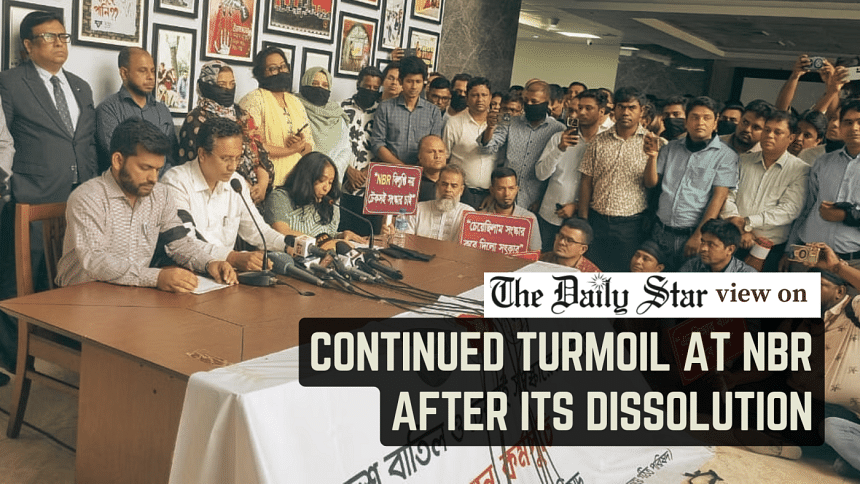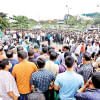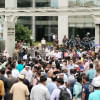Resolve the NBR reform crisis without delay

We are concerned by the continued turmoil at the National Board of Revenue (NBR) which puts a question mark not only on the viability of any tax reforms but also the future of proposed institutional reforms in other sectors. According to a report by this daily, the turmoil deepened on Wednesday as disgruntled tax, customs, and VAT officials launched a fresh five-day protest demanding the NBR chairman's removal and the repeal of the May 12 ordinance that split the NBR into separate entities for tax policy and revenue collection. The protests were triggered in particular by a clause in the ordinance that allows officers from the general admin cadre to lead the new divisions, raising fears of marginalisation of revenue cadre officers.
The government argues that the structural overhaul is aimed at preventing conflicts of interest between policymaking and implementation, but revenue officials say some provisions of the ordinance are discriminatory. However, while their grievances seem to have a point, their methods of expression—an initial five-day pen-down strike, and the subsequent escalation of protests after a failed talk with higher authorities on Tuesday—are unacceptable considering their disruptive effects across the tax administration. Reportedly, the protests have considerably hampered customs clearance and trade operations, leading to delays in tariff assessments and goods release, which in turn is disrupting supply chains and affecting businesses. The unrest also threatens the government's ability to meet its revenue collection target of Tk 463,500 crore, with Tk 178,500 crore still to be collected in the final two months of the current fiscal year.
The protesters, organised under the banner of NBR Reform Unity Council, insist they are not opposed to NBR reform or the separation itself, but want transparency, fairness, and proper inclusion of experienced revenue officers in the restructured framework. But if their protests escalate into a full work stoppage as planned, it would have a disturbing effect on trade, revenue collection, and public finance overall. Clearly, there can be no justification for the way the protesters chose to make their point.
The protesters, organised under the banner of NBR Reform Unity Council, insist they are not opposed to NBR reform or the separation itself, but want transparency, fairness, and proper inclusion of experienced revenue officers in the restructured framework. But if their protests escalate into a full work stoppage as planned, it would have a disturbing effect on trade, revenue collection, and public finance overall. Clearly, there can be no justification for the way the protesters chose to make their point, exploiting their privileged position as government employees to bring vital public services to a halt. But the government also must take responsibility for failing to anticipate this crisis, and urgently initiate meaningful dialogue to resolve it.
Given the objections raised by the protesters, we think it is only fair that a comprehensive review of the ordinance is conducted, incorporating inputs from the NBR reform committee's report as well as international best practices. It is also crucial that institutional reforms like this do not become a battleground for bureaucratic turf wars. Nor should they create an environment in which vested interests can resist necessary change. Given that Bangladesh has one of the lowest tax-GDP ratios in the world, it is extremely important that the long-overdue reform of its tax administration goes on uninterrupted.


 For all latest news, follow The Daily Star's Google News channel.
For all latest news, follow The Daily Star's Google News channel. 









Comments